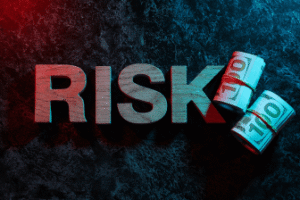
Risk Management Course Demand and Scope in 2025
Risk Management Course Demand and Scope in 2025
The increasingly dynamic nature of global markets, technological shifts, and financial risks has made risk management an essential part of every business plan. Companies in banking, insurance, finance, manufacturing, and even technology now hire professionals who can identify, assess, and reduce potential threats before they affect performance.
As a result, the demand for a risk management course in 2025 has risen sharply. It has become one of the most promising career paths for young professionals and graduates aiming to enter corporate management and finance.
Understanding Risk Management
Risk management involves identifying potential risks—financial, operational, or reputational—and developing measures to minimise their impact.
As global business models evolve and compliance standards tighten, companies seek professionals who can make strategic decisions using analytical insights and governance principles.
A well-structured risk management course teaches essential principles, tools, and techniques to manage uncertainties. It also provides exposure to financial analytics, enterprise and operational risk, credit risk, and strategic decision-making.
Increasing Demand for Risk Management Courses in 2025
The year 2025 marks a new era of corporate governance. Organisations now focus on sustainability, compliance, and proactive risk policies. This shift has increased the demand for risk management education among students, professionals, and career changers.
Key Factors Driving the Demand
- Enhanced Regulatory Oversight: Banking and insurance industries face stricter regulations, creating a need for certified professionals with risk reporting knowledge.
- Technological Advancements: Cybersecurity threats, AI-driven systems, and frequent data breaches require experts in digital and operational risk management.
- Strategic Business Planning: Risk management is now central to boardroom strategy. Skilled professionals can forecast risks and suggest practical measures.
- Global Career Opportunities: A diploma or certificate in risk management opens international roles in finance, consulting, and corporate governance.
- Industry Recognition: Employers prefer candidates with certifications that reflect both theoretical knowledge and practical implementation skills.
Scope of Risk Management in 2025
The career opportunities for risk-trained professionals are broader than ever. Today, organisations integrate risk analysis into every department—finance, IT, HR, supply chain, and marketing.
- Banking and Financial Services: Banks hire risk experts to manage credit, market, and operational risks while ensuring compliance with global standards.
- Insurance Sector: Risk analysts design policies, assess liabilities, and create strategies to minimise losses from claims.
- Corporate and Manufacturing: Professionals in this sector address operational breakdowns, supply chain risks, and safety regulations.
- Consulting and Advisory: Consulting firms employ risk specialists to develop sustainable frameworks and conduct enterprise-wide assessments.
- Cybersecurity and Technology: As digital transformation grows, companies seek cybersecurity professionals to protect data and digital infrastructure.
Why Study Risk Management in 2025?
Risk management courses build technical, analytical, and leadership skills. They prepare you to handle complex risk environments and strengthen organisational resilience.
Top Reasons to Pursue Risk Management in 2025
- Career Flexibility: Opens opportunities in finance, insurance, and IT.
- Job Stability: Risk roles are considered essential in modern businesses.
- Global Recognition: Certified professionals enjoy international mobility.
- Higher Earnings: Skilled risk professionals receive competitive salaries.
- Strategic Impact: Your work directly influences company safety and profitability.
Popular Courses and Certifications in India
Several institutions in India offer risk management programmes. Among them, the Global Risk Management Institute (GRMI) stands out for its practical, industry-driven approach.
PGDRM at GRMI
The Post Graduate Diploma in Risk Management (PGDRM) at GRMI equips learners with in-depth knowledge of financial, operational, and enterprise risk.
The course focuses on:
- Real-world business case studies
- Expert-led teaching by industry professionals
- Advanced risk analytics and evaluation tools
- Career support and placement opportunities
Graduates emerge ready for roles such as Risk Analyst, Compliance Officer, Risk Consultant, and Enterprise Risk Specialist.
What You Learn in a Risk Management Course
A risk management programme provides theoretical and practical understanding in areas like:
- Financial Risk Management
- Strategic and Operational Risk
- Market and Credit Risk
- Quantitative Risk Analysis
- Compliance and Regulatory Frameworks
- Corporate Governance
- Cybersecurity and Emerging Technologies
Together, these subjects offer a complete view of enterprise-level risk structures and management frameworks.
Career Pathways After a Risk Management Course
Completing a risk management diploma or certification opens many career options, including:
- Risk Analyst: Assesses an organisation’s risk exposure.
- Credit Risk Officer: Manages credit liabilities in banks.
- Compliance Manager: Ensures adherence to laws and regulations.
- Enterprise Risk Consultant: Advises firms on governance models.
- Operational Risk Specialist: Focuses on system and process efficiency.
- Cyber Risk Analyst: Protects digital assets from security threats.
As the field expands, emerging roles now include ESG, sustainability, and data-driven risk forecasting.
Future Outlook and Trends
The future of risk management beyond 2025 looks promising, with trends such as:
- AI and Data Analytics Integration: Tools that predict and manage risks using data-driven insights.
- Sustainability and ESG Risks: Companies increasingly evaluate environmental and social risks.
- Digital Finance and Cybersecurity: Fintech growth demands advanced risk governance.
- Global Standardisation: International frameworks are creating more global job opportunities for certified professionals.
Graduates from leading institutions like GRMI are well-positioned to adapt to these evolving trends.
Conclusion
The growing demand for risk management courses in 2025 highlights the importance of this discipline across industries. Professionals with a Risk management certificate course or diploma Course bring immense value to organisations.
Institutions like GRMI play a vital role in shaping such professionals through their PGDRM programme, which bridges the gap between academic theory and industry practice.
Pursuing a risk management course today can open doors to a fulfilling, globally recognised, and future-ready career.
FAQ’s
Q1: What is the eligibility for a risk management course?
Ans: Most diploma or certification programmes require a graduate degree in finance, commerce, economics, or business administration. Some also accept experienced professionals.
Q2: Is a risk management diploma worth it in 2025?
Ans: Yes. With growing focus on compliance, governance, and digital risk, a diploma provides a strong competitive advantage.
Q3: How long does a risk management certificate course take?
Ans: Most certificate programmes last between six months and one year, depending on the institute and curriculum.
Q4: What are the career opportunities after completing a risk management course?
Ans: Graduates can work in finance, consulting, banking, insurance, or corporate sectors as Risk Analysts, Compliance Officers, or Enterprise Risk Consultants.
For any queries please fill the form
You may also like

Which careers are truly safe from layoffs in 2026?

What Are the 3 Types of Credit Risk?


